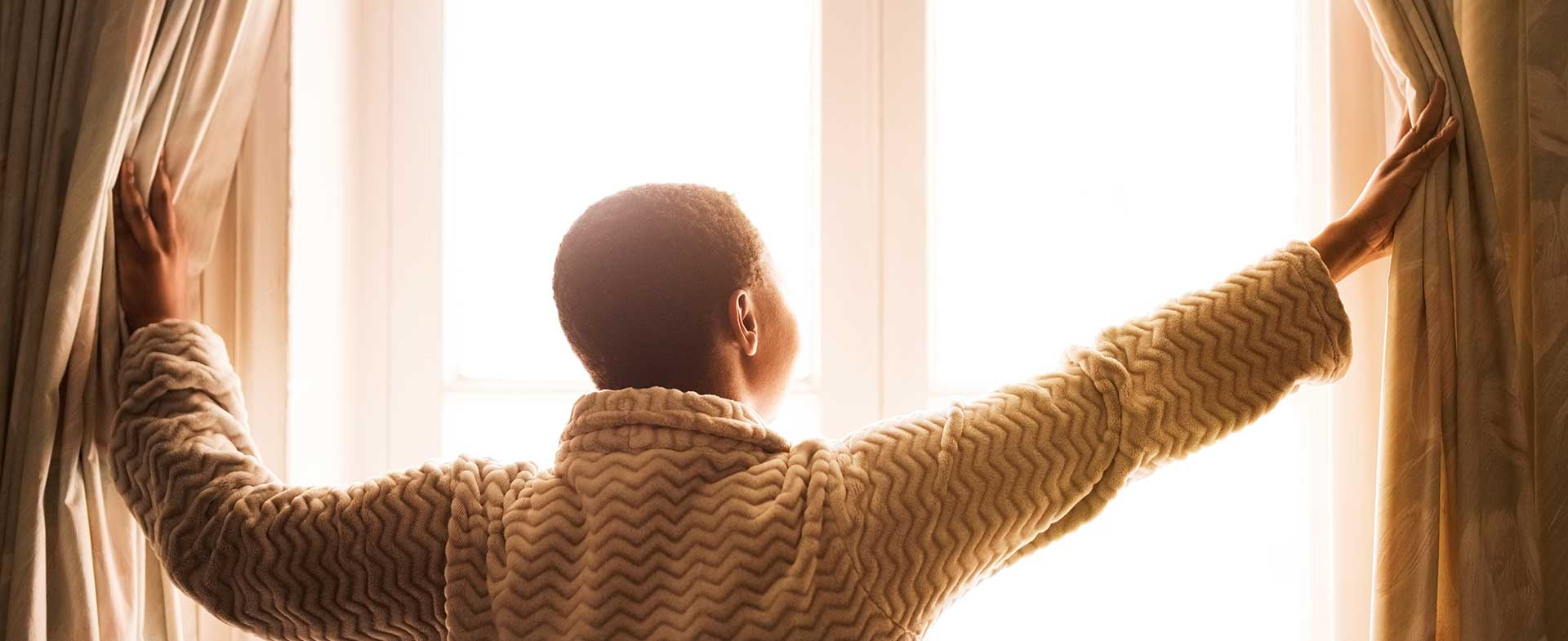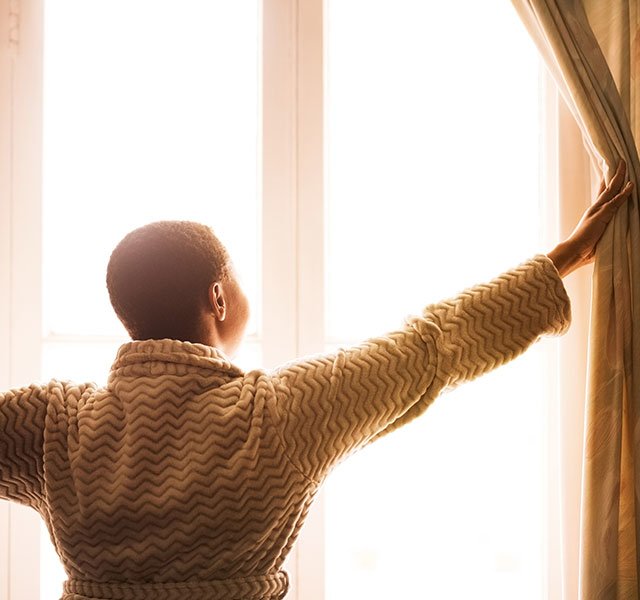Whether you're a night owl or an early bird, most people identify with a particular sleep pattern. These patterns, called chronotypes, are set by your individual internal clock.
"Everyone has preferred sleep habits and they change based on your age and other lifestyle factors," says Christopher Drake, Ph.D., a sleep medicine specialist at Henry Ford Health. "Some people are up and ready to go first thing in the morning, others operate best after midnight." The question then is: How do we work with (instead of against) our natural tendencies?
Chronotypes Explained
Although “chronotype” sounds like something you might hear while shopping for paint colors, it applies to your sleeping patterns. It reflects individual differences in activity and alertness (or lack thereof) in the morning and evening.
Three noteworthy chronotypes:
- Early Bird/Lark: Prefers going to bed early and rising very early in the morning (before 6 a.m.).
- Night Owl: Prefers going to bed late (after midnight) and rising later in the morning whenever possible (after 10 a.m.).
- Neither: Used to describe someone who does not have a specific preference for when they go to bed or rise.
No matter what your true chronotype, most people identify as either a lark or an owl. And everything runs more smoothly when your activities align with your natural rhythm. So what are the factors that influence your sleep pattern?
- Genetics: From an early age, individual differences between larks and owls begin to emerge.
- Life phase: The human body's biological clock changes throughout the life cycle. Young children tend to be larks, teens shift into an owl pattern and seniors fall somewhere in between, experiencing fragmented sleep during the night and fatigue/sleepiness during the day.
- Behavioral changes: If you regularly work the graveyard shift, your chronotype may begin to shift depending on several factors including light/dark exposure. "Behavior can impact your biology just like your biology can impact your behavior," Dr. Drake says.
- Hormonal influences: While scientists don't fully understand how hormone levels affect sleep, they do know that more females than males experience insomnia. This difference begins to emerge close to puberty.
Changing Chronotypes
Chronotypes are partially inherited. You're born with an internal clock and changing it can be difficult. "It's hard for owls to get up really early in the morning and it's hard for larks to stay up late into the night," says Dr. Drake.
But you can modify your natural chronotype by implementing certain behavioral shifts. Here's how:
- Play with light: Regular exposure to bright light at just the right time can affect your chronotype over time. So, if you're an owl, bright light at 6 a.m. can help nudge you toward early riser tendencies. Not only can this help improve your sleep, but research has shown it may also lead to better overall functioning and ultimately improved quality of life. More like a lark, but need to remain awake at night for your job? "Expose yourself to light later at night, close to midnight or even 1 a.m.," Dr. Drake advises.
- Be consistent: If you're trying to shift to a different chronotype, it's important to be consistent. Instead of waking up at 6 a.m. one day and sleeping until noon the next, select the pattern that works best with the times you need to be productive and stick with it.
Working With Your Chronotype
While you've probably heard the phrase "the early bird catches the worm," there's minimal scientific evidence to suggest that tenet applies to human sleep-wake functioning. But there is evidence to suggest that synchronizing your daily activities with your natural chronotype may help boost efficiency.
"If you're a lark and your job requires you to get up early in the morning, you're in luck. But if you're a lark and you're expected to work a graveyard shift, that can be a problem," says Dr. Drake. "The key is to match your chronotype to your work schedule whenever possible. And don’t forget that it’s sometimes best to match activity to chronotype rather than the other way around. Some people simply shouldn’t work the night shift.”
Having trouble shifting your biological clock, even after playing with light and adopting a consistent schedule? Check in with your primary care provider to see if consulting a sleep specialist is appropriate. There could be physical or emotional factors at play. The good news is that nearly all sleep disorders can be readily treated safely and effectively. If you want to be at your best, you need to prioritize quality sleep.
To find a doctor at Henry Ford, visit henryford.com or call 1-800-HENRYFORD (436-7936).
Dr. Christopher Drake is board-certified in sleep medicine and behavioral sleep medicine at Henry Ford Hospital and Henry Ford Medical Center – Columbus.



